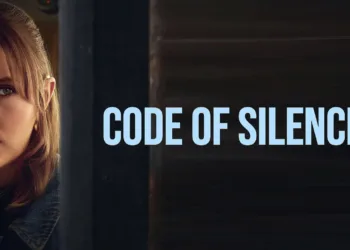Richard Linklater greeted enthusiastic applause following the Cannes debut of Nouvelle Vague, his portrait of Jean-Luc Godard’s audacious creation of Breathless. Speaking beside Quentin Tarantino, a filmmaking peer of three decades, Linklater drew parallels between the original French movement and his own 1990s independent surge.
“I told Quentin I felt like I was 28 again, making Slacker,” Linklater said after the premiere. “On that film, I was full of ideas, and everybody around me was asking, ‘So what now?’ It’s thrilling but nerve-racking.”
Nouvelle Vague dramatizes Godard bluffing his way through the shoot of Breathless, pioneering jump cuts and handheld camerawork that shocked audiences. Linklater, seated at a rooftop venue near the Palais, noted how Godard, Truffaut and peers transformed cinema by breaking rules. “They reshaped storytelling,” he said. “We felt that same buzz in the ’90s with Tarantino, Soderbergh, Anderson and van Sant.”
Linklater questioned whether today’s industry offers space for radical artistic shifts. “Those gatekeepers used to be curious about alternatives,” he said. “Now, if a project hasn’t grossed figures above a certain threshold, it barely registers. Money determines visibility.”
Zoey Deutch, who plays Jean Seberg, praised Linklater’s steady pace. “He finishes one film, then immediately starts the next without stress,” she said. “He balances discipline with freedom.”
As Nouvelle Vague wins critical praise, Linklater is extending his influence as executive producer on a Hong Kong–U.K. remake of his 2001 thriller Tape. Bizhan Tong directs the Cantonese-language version, written by Tong and Stephen Belber, and starring Kenny Kwan, Selena Lee and Adam Pak. Showalker U.K., a new distribution outfit founded by Linus Leung, acquired rights and will present the film at Raindance this autumn.
Tong emphasized cross-cultural collaboration. “Working with voices from Hollywood and Hong Kong brings fresh perspectives,” he said. “This project demonstrates that local stories can resonate worldwide.” British composer Keaton Henson crafted an original score, while production wrapped in Hong Kong and post-production took place in London.
Showalker U.K. focuses on bringing distinctive Asian titles to British audiences. Leung said, “Our goal is to pair artistic merit with commercial potential. This Tape remake honors Linklater’s vision while speaking directly to Hong Kong cinema fans and diaspora communities.”
Early screenings in Asia have already secured distribution deals in multiple territories. Raindance, running September 18–27, offers a stage for independent features that blend art-house sensibility with genre energy.
Linklater’s career has long balanced innovation and consistency. He spent 11 years filming Boyhood to capture authentic growth, and he’s currently shooting Merrily We Roll Along, a real-time adaptation of Sondheim’s musical with Ben Platt, Paul Mescal and Beanie Feldstein. “Film needs patience,” he said. “Rehearse until it feels natural, then let actors bring it to life.”
At Cannes, Linklater reflected on moments of upheaval that shaped cinema history. He recalled the energy of the New Wave and then the 1990s indie boom, when arthouse directors crossed into mainstream awareness. “Those cultural turns felt electric,” he said. “I’d like to see that spark again, with room for new voices.”
Meanwhile, Nouvelle Vague continues its festival run, and the Tape remake readies for its U.K. debut. Both projects underscore Linklater’s belief that storytelling thrives when artists push against formula—whether reinventing a French classic or reimagining an American drama in a Cantonese tongue.















































